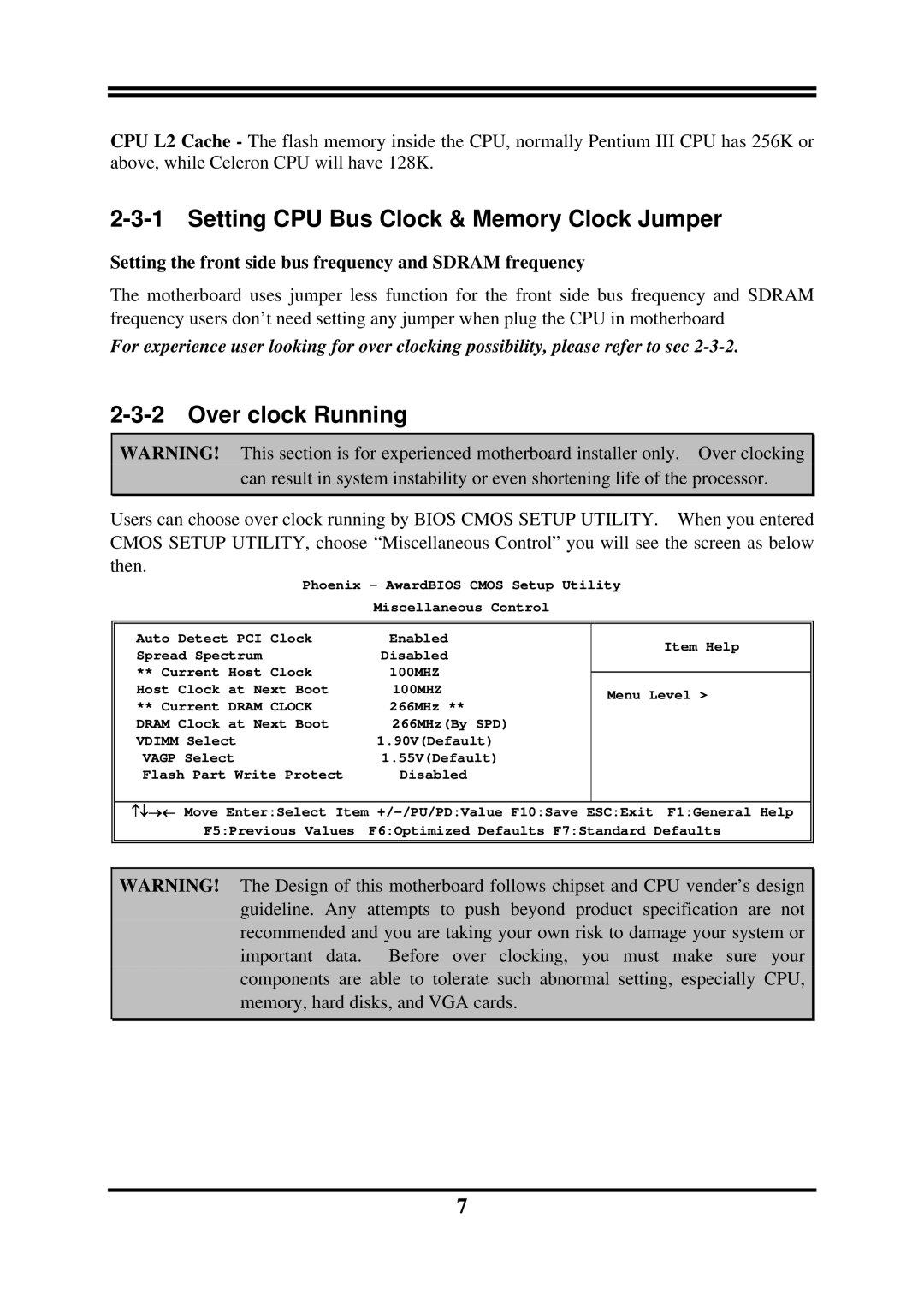
CPU L2 Cache - The flash memory inside the CPU, normally Pentium III CPU has 256K or above, while Celeron CPU will have 128K.
2-3-1 Setting CPU Bus Clock & Memory Clock Jumper
Setting the front side bus frequency and SDRAM frequency
The motherboard uses jumper less function for the front side bus frequency and SDRAM frequency users don’t need setting any jumper when plug the CPU in motherboard
For experience user looking for over clocking possibility, please refer to sec
2-3-2 Over clock Running
WARNING! This section is for experienced motherboard installer only. Over clocking can result in system instability or even shortening life of the processor.
Users can choose over clock running by BIOS CMOS SETUP UTILITY. When you entered CMOS SETUP UTILITY, choose “Miscellaneous Control” you will see the screen as below then.
Phoenix – AwardBIOS CMOS Setup Utility
Miscellaneous Control
Auto Detect PCI Clock | Enabled | Item Help |
Spread Spectrum | Disabled | |
** Current Host Clock | 100MHZ |
|
| ||
Host Clock at Next Boot | 100MHZ | Menu Level > |
** Current DRAM CLOCK | 266MHz ** |
|
DRAM Clock at Next Boot | 266MHz(By SPD) |
|
VDIMM Select | 1.90V(Default) |
|
VAGP Select | 1.55V(Default) |
|
Flash Part Write Protect | Disabled |
|
|
|
|
↑↓→← Move Enter:Select Item
F5:Previous Values F6:Optimized Defaults F7:Standard Defaults
WARNING! The Design of this motherboard follows chipset and CPU vender’s design guideline. Any attempts to push beyond product specification are not recommended and you are taking your own risk to damage your system or important data. Before over clocking, you must make sure your components are able to tolerate such abnormal setting, especially CPU, memory, hard disks, and VGA cards.
7
